Intrigues and Tzuris
After surviving the war, part of my family ended up in Antwerp, some of them venturing into the city’s famous diamond trade. I’d always wished my grandfather had stayed in touch with them, but after watching Rough Diamonds (streaming on Netflix), I’m not so sure.
The Wolfsons are a wealthy, prominent Hasidic family who run a famous but ailing diamond concern. The show begins with their troubled son Yanki (Vincent Van Sande) stealing a gun from the security guard outside the firm’s headquarters and shooting himself dead. Yanki leaves behind a lot of Wolfsons: a grieving widow, Gila (Marie Vinck, convincingly overwhelmed), his father Ezra (Dudu Fisher, craggy and leonine) and mother Sarah (a dignified, sorrowful Yona Elian), a brother, Eli (Robbie Cleiren, eyebaggy and furtive), and a sister, Adina (Ini Massez, all feline watchfulness and authority), not to mention a slew of hangers-on and wanna be Wolfsons like cousin Benny (Jeroen Van der Ven, who looks like a skinny, Jewish Bradley Cooper).
Returning from London for Yanki’s shiva is Yanki’s brother Noah, played by Kevin Janssens. Noah has a steely gaze and a complicated chin. He is clean-shaven, yarmulke-less, and looks like his first stop off the derekh was to sign up for CrossFit. “I’m not here for the cholent!” he rasps—think Aaron Eckhart if he stepped straight from a revenge flick into an episode of Shtisel. Long ago, Noah was engaged to Gila, but he fled for London, leaving her to marry Yanki (Noah’s return after Yanki’s death leads to a string of entanglements that could be levirate but feel more like attempts to generate some heat). The family mostly welcomes back Noah and his young son, but the mystery of how a family of pale, pouchy Ashkenazim gave birth to this action star is sadly never addressed.
When Noah finds out Yanki had gambling debts, he gives a watch and a beating to the bookie who’d been pressuring him, going full Dirty Herschel. It turns out that in Noah’s time away, he has become a fixer for his tough, frosty mother-in-law, Kerra (Tine Joustra). Kerra is a London crime boss with a pan-European accent. Fortunately, even with her hard-to-place inflections, Kerra feels comfortable talking on the phone about her criminal exploits, so we learn a fair deal about her need for “product.” In no time, Noah finds himself navigating the issues of both his birth family and the one he married into, the tense Antwerp diamond bourse and the thuggish Albanian mob, with whom he’s forced to engage while trying to fend off the Wolfsons’ mounting debts, his relentless mother-in-law, and a hangdog Belgian prosecutor.
Shtisel meets Ozark is not a bad pitch for a show, but its strands never quite come together. Too often Rough Diamonds feels more like a Belgian Ray Donovan, with breaks for mincha.
Rough Diamonds was commissioned by Netflix Belgium and is a coproduction by Israeli powerhouse Keshet International and prolific Belgian production house De Mensen. It was created by Rotem Shamir (Fauda) and Yuval Yefet (Line in the Sand), and the episodes were directed half by Shamir and half by Cecilia Verheyden, whose other credits include a Belgian show called wtFOCK.
Rough Diamonds could use a bit more wtFOCK; it has a lot of plot but remains stubbornly episodic, as Noah rushes to solve eight episodes’ worth of intrigues and tzuris. Why did Noah leave Antwerp in the first place? How, of all the women in London, did he end up with Kerra’s daughter? “It’s complicated,” Noah says. We expect that more details will emerge, but they don’t. And when Noah gives someone a good zets and says, “The goyim taught me well,” making him sound like Mowgli, I began to wish he’d spent more time with different goyim, maybe Tony Soprano or Breaking Bad’s Walter White—real characters who could have taught him what it takes to be a flawed, complex, or even narcissistic protagonist who drives the action, rather than being in a constant state of squinty reaction to it.
Watching Rough Diamonds can be frustrating as sources of tension are floated and then dropped: at one point, Sarah, the matriarch, crowns her daughter Adina the next head of the Wolfson empire. A fascinating power struggle, rich with sibling rivalry and gender dynamics, does not ensue. Instead, Adina decides to share equally with her brothers. Marie, a blonde Belgian love interest for Noah, works at a mining company with the titular rough diamonds in its safe. When the diamonds go missing, she doesn’t suspect him, even though he happened to see the PIN she punched in just the other day. Noah’s son Tommy goes momentarily missing—was it the Albanians? It turns out he’s fine. And so on.
Still, the show has its moments. When the family needs a huge quantity of diamonds to get the Albanians off their backs, a clever plan is hatched to sneak a safecracker into the building where the diamond merchants work just before Rosh Hashanah, when they’ll all be at shul. Adina, anxious but poised,carries an apple kuchen to a friend in the building, a ruse that allows the safecracker to sneak in behind her. Upon seeing Adina, the safecracker utters the prearranged code phrase: “Is it fresh?” to make sure she is his contact. (I was hoping Adina might shrug and say, “Nu, it could be fresher.”)
Streaming has opened up a world of subcultures to our homes, and on the count of verisimilitude, Rough Diamonds is mostly convincing. The Hasidic costumes, beards, and wigs are realistic, there are mezuzas on every doorpost, and the shul scenes feel enjoyably heymish. The primarily Belgian, non-Jewish cast members of Rough Diamonds acquit themselves impressively, switching at the drop of a hat between Yiddish, Flemish, and French—much as the show’s characters would have to toggle between languages in their working lives. But the show’s surface authenticity rarely deepens into psychology. The Wolfsons spend entirely too much time looking tense in elegant doorways. And while the polyglot nature of the show feels realistic, the dialogue itself is often workmanlike rather than idiomatic. The occasional exception, like a character yelling, “Du host undz arayngeshlept in deze balagan! (You dragged us into this mess!)” comes as a big relief.
To its credit, Rough Diamonds doesn’t depict its world as irredeemably oppressive, the way Unorthodox, a very different Netflix series about Hasidic life, did. The Wolfsons’ high-ceilinged home feels gracious and warm, and the kids seem well cared for. The show succeeds when its characters work with what they have, like Eli, haplessly trying to maneuver a rival by tattling on his son’s nonkosher internet habits (it doesn’t work). Noah’s best scheme involves slapping a hat and kapote on an Albanian goon so he can do some cross-border smuggling in a chevra kadisha van.
Among the supporting cast, I loved the perpetual unease of Janne Desmet, who plays Eli’s frowsy, sour wife Rivki. But the show’s best performer by far is the former Les Misérables star, Dudu Fisher, as Ezra, the Wolfson paterfamilias. Rough Diamonds really comes alive when he appears. His Yiddish is the most believable because he really speaks it. Fisher can feel in Yiddish too. When Ezra chastises Noah for having left his community and God all for gornisht—nothing—it has real force and sorrow behind it. So it is disappointing that Fisher barely speaks in his first scenes, then gets to sing a little in the second episode (finally!), and then is forced to exit stage left. Does this mean that only Jews should portray Jews onscreen? No, but it means that when a show has someone with the face, presence, and gravitas of Fisher, it should do more than give him a predictable heart attack.
Rough Diamonds is a show about Jews, greed, and money, which may make some viewers nervous, but antisemitism is not one of its faults. The Wolfsons are by and large decent, desperate people caught in a jam and surrounded by far worse types. Honestly, if anyone in Rough Diamonds needs better representation, it’s the Albanians, a lumpen lot with scars and facial hair that makes you think payos are not so bad.
For those looking to really get arayngeshlept into a great crime drama, Rough Diamonds never quite delivers. Mixing the familial, the religious, and the criminal is not a bad cholent recipe, but if it’s going to be satisfying, it really demands to be served hot.
Suggested Reading
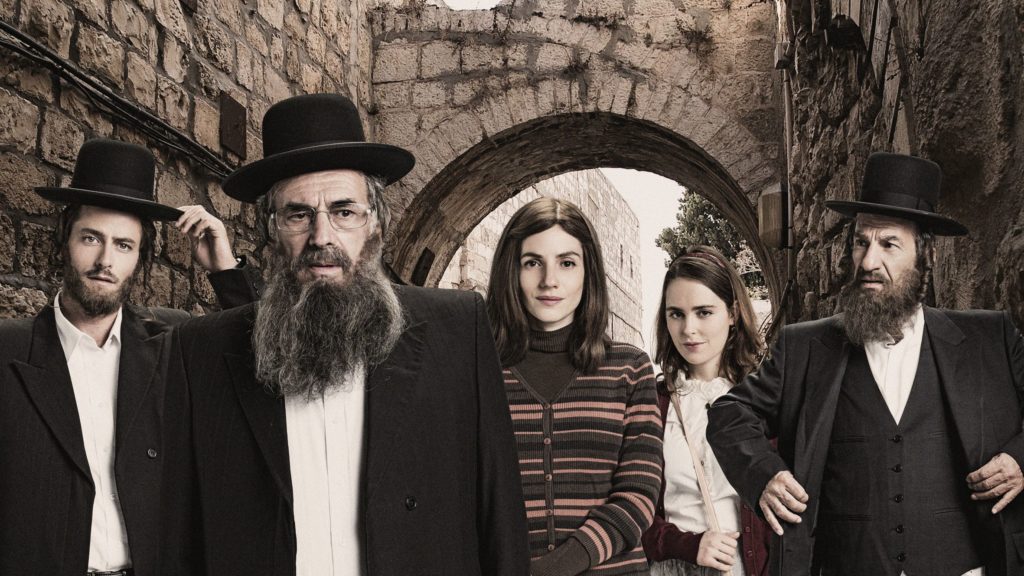
Tragedy and Comedy in Black and White
Lately it seems to be the season of haredim on screen. Sarah Rindner's immersion in this very particular oeuvre began with Shtisel, the 2013 runaway hit Israeli TV series, which depicts a haredi family in Jerusalem in all of its complicated, charming dysfunction.
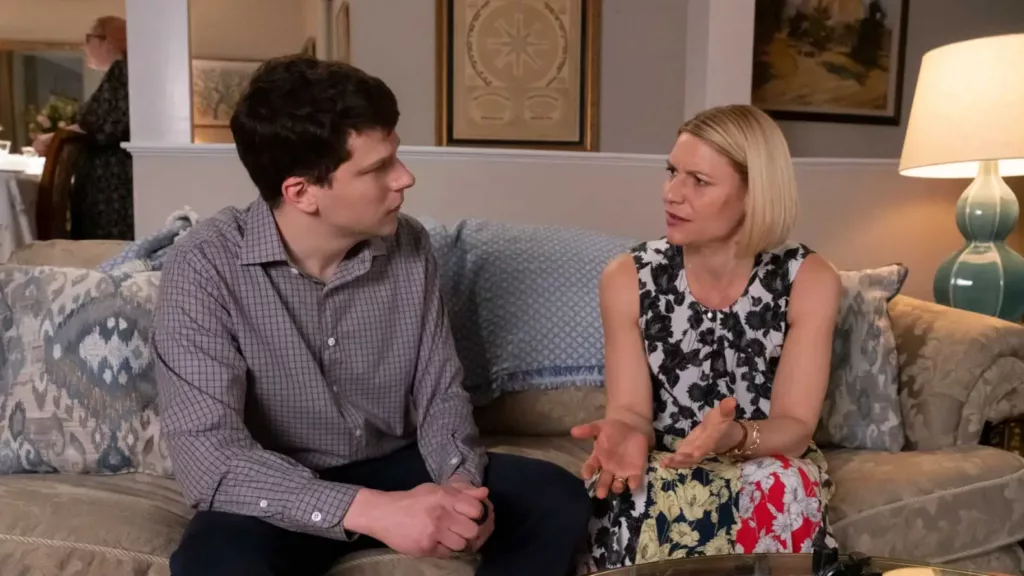
Fleishman Is a Series
Fleishman's real problem is not an acrimonious divorce, but an uninspired adaptation.
The Rebbe and the Yak
What do you do when your ancestor appears to you in a dream saying that he is trapped inside the body of a Tibetan yak? If you're the Ustiler Rebbe in Haim Be'er's new novel, you go to Tibet to find him, of course.
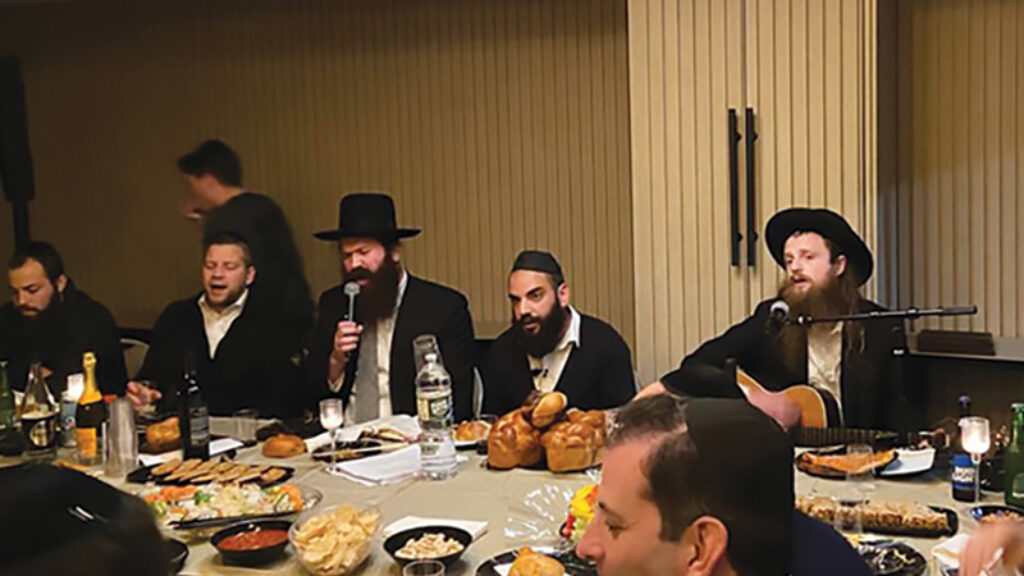
Wild Things: The New Neo-Hasidism and Modern Orthodoxy
Who are Joey Rosenfeld and his pseudo-Hasidic pranksters, and what does their success have to do with the future of Modern Orthodoxy?
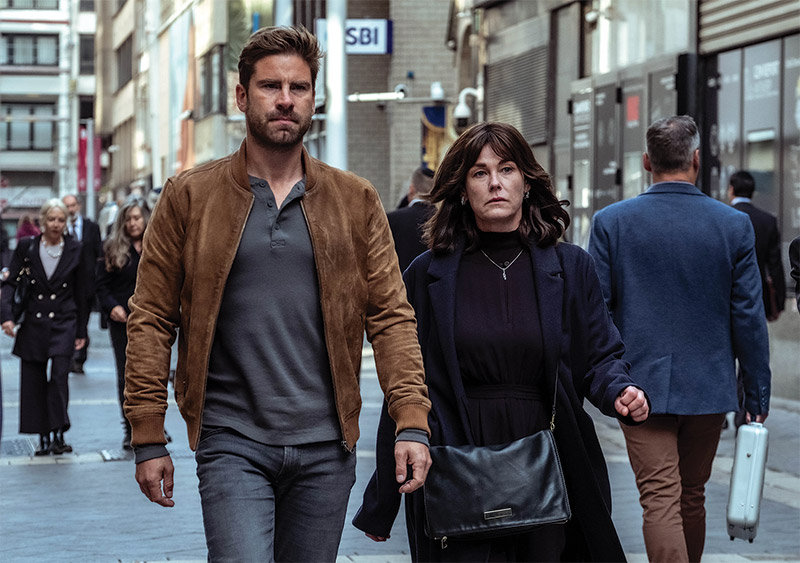
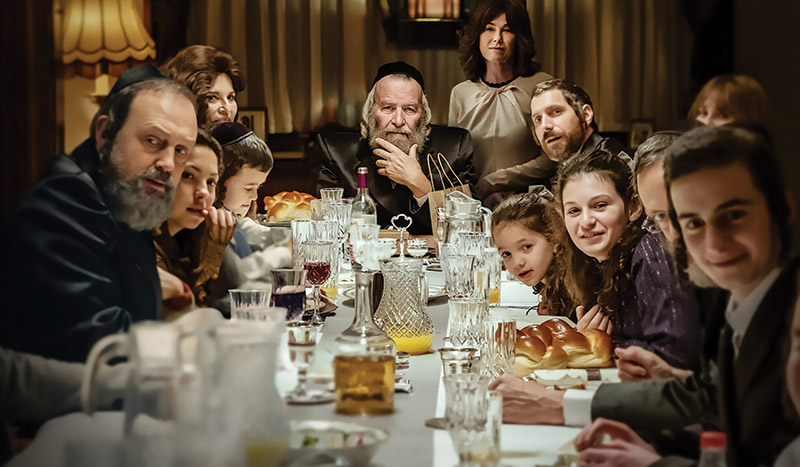
Comments
You must log in to comment Log In